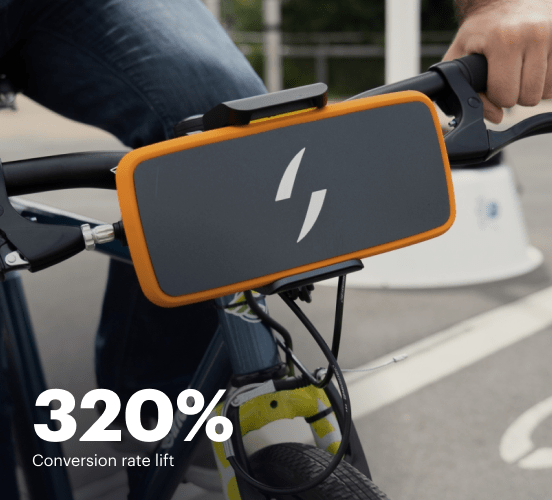How Paperform vs. Drupal vs. Instapage stack up against each other
Compare Instapage with Paperform and Drupal to create high-converting landing pages. With personalization, optimization, and collaboration tools, Instapage helps you deliver experiences that drive results.
Get startedSee how Instapage stacks up against the competition
| Feature | Instapage | Other builders |
| Drag-and-Drop Tools | ||
| Conversion-optimized templates | ||
| Manual and AI-powered A/B Tests | ||
| AI content suggestions | ||
| Popups and sticky bars | ||
| Canvas and grid blocks | ||
| Reusable and global elements | ||
| Form and popup builders | ||
| Built-in Heatmaps | ||
| Central analytics dashboard | ||
| Ad-to-page personalization and collections | ||
| Contacts, lists, and email | ||
| Dedicated, full-service CRO experts | ||
| Enterprise-ready platform |
Leading the way in building high-performing landing pages





Why Instapage is the smarter choice for your campaigns
Get everything you need to build, scale, and optimize high-converting landing pages—without coding.
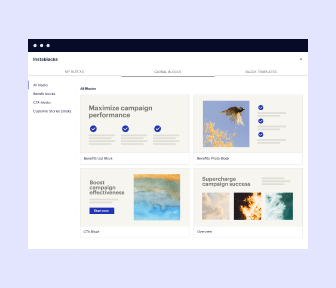
Easier page building without coding
Instapage offers a flexible and seamless page creation experience with a library of 500+ conversion-focused layouts, Instablocks®, a drag-and-drop builder, and AI content generation. With technologies like Thor Render Engine®, you can create on-brand, mobile-responsive landing pages that load quickly and start converting during initial visitor clicks.
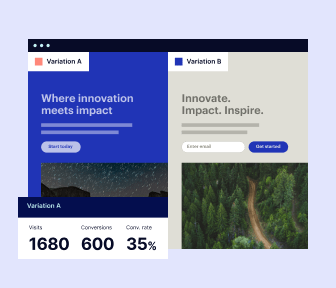
More insights — better results
Instapage lets you see in detail how each landing page experience and variation is performing so you can make targeted changes that boost page conversions. Use heatmaps for a better understanding of on-page activities, run A/B tests and AI-assisted experiments, and then track and evaluate results within robust analytics dashboards.

More personalized experiences
Instapage lets you quickly create high-performing landing pages tailored to each of your ad campaigns. Deliver personalized experiences for distinct audiences using dynamic text replacement. Effortlessly align specific advertisements to unique pages with AdMaps. Monitor audience-level metrics using our advanced data tools.
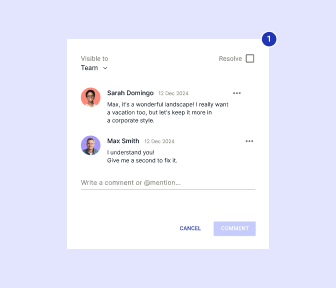
Built-in collaboration
Instapage collaboration capabilities bring your entire team together to speed up the process of landing page review, approval, and launch. No more frustrating and unnecessary revisions or edits scattered across emails. Provide instant feedback, conduct real-time page edits, and securely share your pages with outside stakeholders.
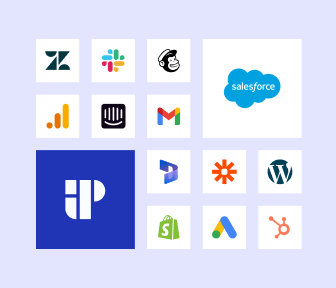
Free up time for your business
Invest time into business growth, not busy work. Launch landing pages faster with reusable forms and templates. Build once, reuse forever.
Explore all integrations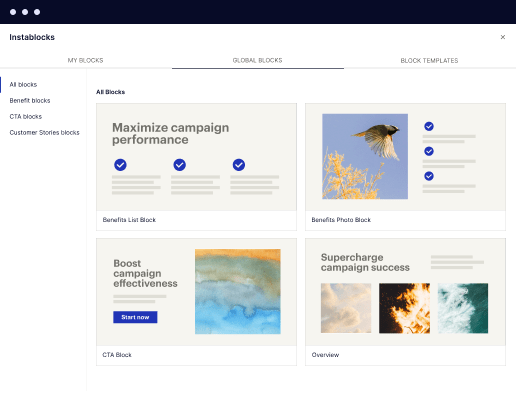
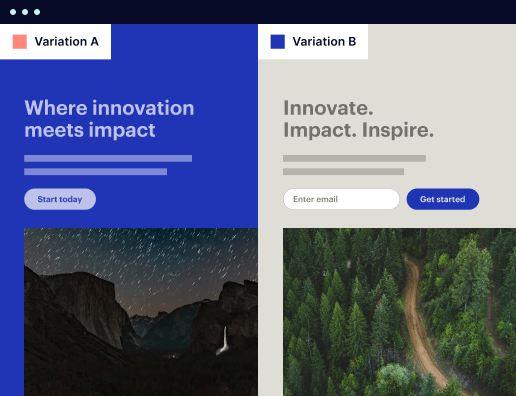
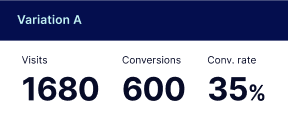
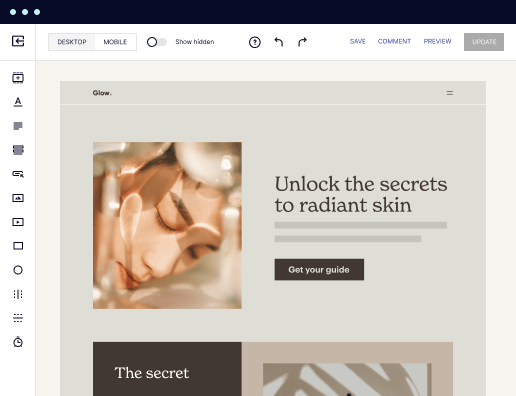

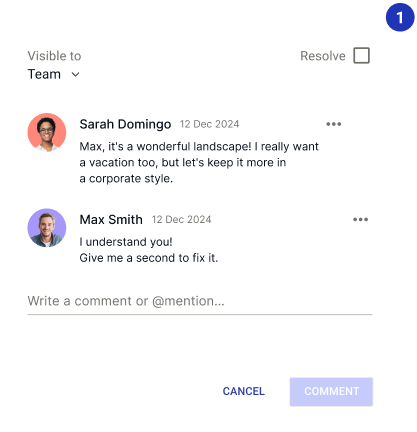

Easier page building without coding
Instapage offers a flexible and seamless page creation experience with a library of 500+ conversion-focused layouts, Instablocks®, a drag-and-drop builder, and AI content generation. With technologies like Thor Render Engine®, you can create on-brand, mobile-responsive landing pages that load quickly and start converting during initial visitor clicks.
More insights — better results
Instapage lets you see in detail how each landing page experience and variation is performing so you can make targeted changes that boost page conversions. Use heatmaps for a better understanding of on-page activities, run A/B tests and AI-assisted experiments, and then track and evaluate results within robust analytics dashboards.
More personalized experiences
Instapage lets you quickly create high-performing landing pages tailored to each of your ad campaigns. Deliver personalized experiences for distinct audiences using dynamic text replacement. Effortlessly align specific advertisements to unique pages with AdMaps. Monitor audience-level metrics using our advanced data tools.
Built-in collaboration
Instapage collaboration capabilities bring your entire team together to speed up the process of landing page review, approval, and launch. No more frustrating and unnecessary revisions or edits scattered across emails. Provide instant feedback, conduct real-time page edits, and securely share your pages with outside stakeholders.
Free up time for your business
Invest time into business growth, not busy work. Launch landing pages faster with reusable forms and templates. Build once, reuse forever.
Explore all integrationsGet started with Instapage in a few steps
-
Create your Instapage account
Start with Instapage by signing up via Google or your email. You'll get access to a free 14-day trial to discover Instapage capabilities. Feel free to cancel anytime during the 14-day trial if you decide that our product is not suitable for your business. -
Build and personalize your page
Create your first landing page from scratch or choose a template from 500+ customizable layouts. Use the drag-and-drop builder to add page elements, fonts, and backgrounds, refine content with AI, or add custom HTML, Javascript, and CSS. -
Review and make edits
Collaborate on page designs and streamline review processes. Invite your team members and stakeholders to review, edit, and provide feedback on your landing page. Collaborate knowing your page is confidential and only accessible to authorized users. -
Publish and track page performance
Publish your page to a domain or custom URL. Connect your pages to the ads you've created and track page performance within the analytics dashboard, run A/B tests and AI experiments, analyze results, and continuously optimize your landing page to maintain high conversions.
Instapage vs. Paperform vs. Drupal – Which One Should You Choose?
Choosing a landing page builder can feel a bit like assembling an all-star team for a sports event – each player has unique strengths that contribute to the overall success of the game. In today’s competitive digital landscape, you need the right tools to score those essential conversions. This article dives into a friendly comparison of three leading landing page platforms: Instapage, Paperform, and Drupal. Each claims to be the go-to option for empowering marketers, helping them reduce costs, grow conversions, and build landing page experiences that enhance brand trust and customer loyalty. As we explore their features, strengths, and suitability for different marketing needs, you’ll come away with the insights needed to make a well-informed choice. So let’s kick it off and find out which of these platforms ultimately claims the crown. (within this introduction, outline how making a choice can lead to better performance in marketing campaigns.)
Meet the Contenders: A Quick Overview
In the left corner, we have Instapage, a powerful platform renowned for its customizable landing pages designed specifically for conversion optimization. With rich integrations and user-friendly features, it aims to make marketers’ lives easier. In the right corner, we welcome Paperform, which emphasizes seamless form creation and versatility, allowing users to turn forms into beautiful landing pages. Lastly, we have Drupal, the heavyweight champion of content management systems. While it isn’t solely a landing page builder, Drupal offers extensive customization capabilities for those willing to invest in learning its intricacies. Despite their different approaches, each platform serves marketers seeking reliable solutions to drive conversions and optimize costs. In this section, we’ll delve deeper into their unique offerings and how they compare in the bustling market of landing page solutions. (highlight each platform's unique characteristics and market approach in three to four sentences.)
Feature Showdown – What’s on Offer?
Template Variety and User Experience – A Closer Look
When comparing landing page platforms, a rich selection of templates and an easy-to-navigate interface can truly enhance user experience. Paperform stands out with a refreshing array of customizable templates, designed to be visually appealing and functional, appealing to users who value aesthetics alongside functionality. Drupal, although slightly less intuitive for newcomers, boasts a vast library of templates through its community modules, allowing for extensive customization if you’re willing to invest time to learn the system. Meanwhile, Instapage dazzles with a staggering range of professionally designed templates that cater to various industries, all while allowing drag-and-drop customization—making it not only flexible but also incredibly user-friendly. Marketers find that ease of use translates into faster deployment times, leading to quicker conversion wins as they capitalize on relevant landing page experiences that increase brand loyalty and trust. This blend of customization and convenience is one factor that sets Instapage apart from its competitors. (elaborate on usability and template options while maintaining a positive tone.)
Instapage: Your Go-To Solution for Tailored Landing Pages
Instapage serves as a premier choice for marketers looking to tailor landing pages to specific audiences. It offers a plethora of templates, each designed to be easily adjustable to meet various campaign needs. However, what truly distinguishes Instapage is its focus on conversion rate optimization tools. From A/B testing capabilities to heatmaps that show how users interact with your page, Instapage equips marketers with the insights necessary to refine their strategies. Additionally, the platform’s seamless integration with CRM and email marketing tools ensures that businesses can implement their design changes swiftly while tracking performance effectively. Essentially, Instapage positions itself not just as a landing page builder, but as a strategic partner that drives growth, boosts conversions, and nurtures customer loyalty—critical factors in today’s competitive landscape. (expand on the advantages Instapage offers over its competition and how it supports marketing objectives.)
Speed and Performance – Who Takes the Lead?
Ask any marketer, and they’ll tell you: the speed of your landing page can make or break a user’s experience. If loading feels slow, visitors might abandon ship faster than you can say 'bounce rate.' Like standing in line for coffee, a minor delay can tank your day! When it comes to performance, Instapage shines with lightning-fast loading times, even with heavy content and images. Its infrastructure supports dynamic scaling, which means pages will stay speedy, regardless of traffic volume. Paperform, while also relatively quick, strives for user-friendly interaction rather than high-speed handling, which can sometimes be a trade-off. On the flip side, Drupal may require a bit more work on the backend to optimize speed, particularly for those unfamiliar with how to configure its extensive capabilities efficiently. As we look closer, consider how these platforms perform under pressure, which can ultimately influence user satisfaction and conversions. (set the tone to be friendly while introducing performance comparison.)
Instapage's Speed Advantages:
- Lightning-fast page loading times that keep users engaged
- Optimized infrastructure designed to handle high traffic seamlessly
- Advanced caching settings that further enhance speed
- User-friendly interface that helps maintain fast deployments
What Paperform Brings to the Table for Speed:
- Offers quick page generation that focuses on form user experience
- Fairly responsive but can face performance issues with heavy media
- Prioritizes seamless transitions between forms and landing pages
Drupal’s Strengths in Speed and Performance:
- Provides robust performance if optimized correctly, though requires some knowledge
- Versatile options for loading pages faster using various modules
- Best for larger sites where performance tuning can yield significant benefits
- Very flexible in handling various content types efficiently
In conclusion, when it comes to speed and performance, Instapage emerges as the clear leader—especially valuable for time-sensitive lead capture. While Paperform has strengths in usability and versatility, it does show some limitations in performance. Drupal falls behind in requiring enhanced configuration but holds potential for those willing to invest the time. For marketers who prioritize a swift experience that enhances user satisfaction, Instapage proves to be the best fit.
Navigating Usability – How Each Platform Measures Up
Usability is a critical aspect to consider, especially for those new to the world of landing page creation. Instapage welcomes users with its intuitive drag-and-drop interface, making it remarkably easy to design and launch professional-quality landing pages, regardless of technical skill levels. Paperform shines by allowing users to integrate forms effortlessly into their pages, thereby simplifying the lead capture process without fuss. On the other end of the spectrum, Drupal requires a bit more patience and understanding, as newcomers may find its multitude of features a bit overwhelming. However, once you get past the learning curve, the flexibility it offers is unparalleled. Each platform invites users of all backgrounds, and regardless of where you may start, there’s room for growth and mastery with each tool, thus supporting long-term marketing strategies. (put emphasis on the platform's overall accessibility and functionality across varied user bases.)
Support Resources – The Backbone of Your Landing Page Builder
Every great tool needs a support squad behind it, and this is where these platforms have varying strengths. Instapage excels with its dedicated customer support, offering a variety of options including live chat, email support, and extensive documentation that helps users find answers swiftly. For Paperform, the support is friendly and accessible, with quick responses via email and an informative help center that guides users through setup and usage. In contrast, while Drupal has a robust community for peer support, it lacks direct customer service, which can be a hurdle for those in need of immediate assistance. This contrast creates a clear divide—marketers looking for comprehensive direct support may feel stronger in their choice with Instapage, while those willing to navigate forums and community support may prefer Drupal. Having the right support when needed can bridge the gap of uncertainty, leading to better server configurations and ultimate marketing success. (highlight the interaction of users with support systems of each of the platforms.)
Price Point Analysis – Finding Your Budget Fit
Understanding the pricing structures of these platforms is crucial for marketers who want to maximize their ROI. Instapage, while more expensive than its competitors, justifies the cost with powerful features and conversion tools that can lead to greater returns. Paperform comes with a versatile pricing model that fits various budgets by incorporating multiple forms of billing, thus allowing more flexibility. All in all, analysts will find that the upfront costs of Drupal can seem low, but that number can skyrocket with hosting and add-ons depending on usage. This means the total cost of ownership could be higher than expected for users who are just getting started. In summary, while initial investments can vary widely across these platforms, those who recognize the true value of tools like Instapage may find it worthwhile—ultimately leading to enhanced marketing performance and ROI. (encourage readers to consider their budget and long-term strategy while wrapping up thoughts.)
As we wrap up our exploration of Instapage, Paperform, and Drupal, it's clear that while each platform has its own strengths and unique qualities, Instapage ultimately leads the charge for marketers who prioritize seamless integration, speed, and conversion optimization. Paperform may appeal to those focused more on forms and user journey, andDrupal shines for users comfortable navigating its complexities. The best decision hinges on what the individual marketing needs and goals are, and it’s essential to choose the right tool for your unique strategy. Remember, whatever platform you gravitate towards, don’t hesitate to take Instapage for a test drive with their free trial—experience firsthand how it can help reduce costs, grow conversions, and deliver relevant landing page experiences designed to build trust and loyalty in your brand.

